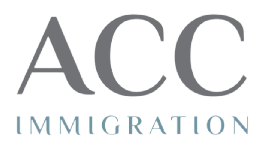The Malta Permanent Residence Programme (MPRP) offers a number of benefits to non-EU/EEA nationals. Check the various advantages that this programme has to offer.
The Malta Permanent Residence Programme (MPRP) is an excellent programme through which high net worth individuals can enjoy various benefits by investing in Malta. Upon attaining residency, investors are able to travel freely within the Schengen zone for 90 days in every 180 days, both for work and leisure, without undergoing border controls. Moreover, given that successful applicants are able to reside indefinitely in Malta, holders of the residency card can eventually apply for Maltese citizenship after having physically lived in Malta for at least five years.
Contact us for more information
What are the benefits of the MPRP?
Throughout the years, Malta’s economic stability and political congruence on socio-economic issues have appealed to various foreign investors seeking a safe, yet competitive jurisdiction to invest and do business. Since accession to the European Union in 2004, traditional markets have been expanding and new niches are being introduced, thus contributing to its steady economic growth. Moreover, Malta’s ability to adapt to economic fluctuations has been paramount in times of unprecedented financial crises and in fact, Malta and Germany were the only two European states to maintain economic progress during the Eurozone crisis in 2008. In addition, since Malta became a full member of the Schengen area, holders of the residency card will also be able to travel without any restrictions throughout the Schengen zone for 90 days out of 180. Families adapt quickly to life in Malta given that English is Malta’s official language and is spoken by everyone on the island.
Malta Permanent Residence Programme (MPRP) – The advantages
The acquisition of Maltese residency by investment offers numerous benefits to foreign investors, particularly non-EU nationals who seek a link with the European Union. The following are a number of benefits which successful applicants may enjoy:
Permanent residency in 6-12 months
Following the submission of the application forms together with the supporting documents, a decision on whether the applicant has been successful is reached within six to twelve months. This means that eligible candidates can become Maltese residents in just a few months under the Malta Permanent Residence Programme.
Possibility of applying for Maltese Citizenship
Moreover, after acquiring Maltese residency through the MPRP, successful applicants are given the right reside indefinitely in Malta, albeit not obliged to do so. Residency is issued for 5 years and is renewable thereafter if all the programme obligations are adhered to. Given the permanent residency status, successful applicants can apply for Maltese citizenship after five years of physical stay.
Visa-free travel in 29 countries
Since Malta is party to the Schengen agreement, holders of the residency card are entitled to the Schengen Residence Card which allows them to travel freely within 29 countries, including the majority of the EU Member States as well as Iceland, Norway, Switzerland and Liechtenstein.
Four Generations in one Application
The MPRP allows for the inclusion of four generations in one application. The applicant may include:
- The spouse or long-term partner
- Unmarried and Dependant Children of the Main Applicant/Spouse (up to the age of 28)
- Dependant Parents of the Main Applicant/Spouse
- Dependant Grandparents of the Main Applicant/Spouse
Right to settle, stay and reside permanently in Malta
The applicant and all family members get the right to settle, stay and reside permanently in Malta with no restrictions. Residence cards are issued for 5 years and renewable thereafter subject that all obligations of the programme are adhered to.
Rental Option Available
The Malta Permanent Residence Programme is the only European residency program to allow a property rental option without requiring the purchase of property before applying for residence, making the process both easy and convenient . In addition, the required investment need only be made on approval, and not at the outset.
